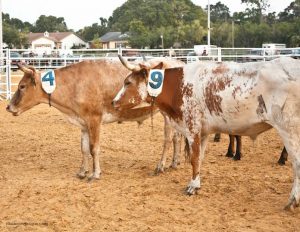The Japanese government decided yesterday to ease restrictions it has placed on U.S. beef imports. Restrictions put in place in 2006 that partially opened the markets did not allow the import of beef from cattle older than 20 months; the industry standard is 30 months.
 The agreement, dated January 25, 2013, requires that the U.S. must “meet or exceed” World Organization for Animal Health (OIE) guidelines to be considered controlled risk for bovine spongiform encephalopathy (BSE). In addition, U.S. meat establishments should be certified as eligible to export meat to Japan, and the Japanese government may conduct on-site audits of the U.S. inspection system.
The agreement, dated January 25, 2013, requires that the U.S. must “meet or exceed” World Organization for Animal Health (OIE) guidelines to be considered controlled risk for bovine spongiform encephalopathy (BSE). In addition, U.S. meat establishments should be certified as eligible to export meat to Japan, and the Japanese government may conduct on-site audits of the U.S. inspection system.
In 2003, Japan banned U.S. beef completely after a case of mad cow disease was discovered in Washington state in 2003. Secretary of Agriculture tom Vilsack and U.S. Trade Representative Ron Kirk issued a joint statement stating that opening Japan’s market will result in “hundreds of millions of dollars in exports of U.S. beef to Japan in the coming years.”
Japan will continue to asses the BSE risk assessment that may raise the age limit above 30 months for beef and beef products imported to Japan, taking into account international standards. The imports will reach Japan by the middle of next month. This move could increase beef prices in the U.S., since cattle numbers in this country are the lowest they have been in 60 years because of the ongoing drought.




